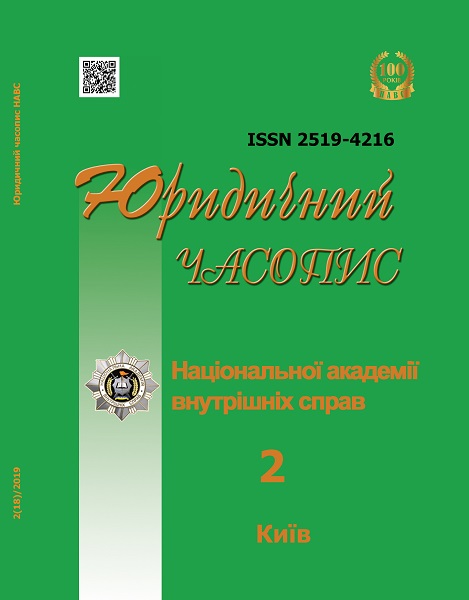Legitimate Civil Procedural Interest as an Element of the Applicant’s Civil Procedural Status in Separate Proceedings
Abstract
The purpose of the article is to investigate the substance of a legitimate civil procedural interest as an element of the civil procedural status of the applicant in separate proceedings. Methodology. The methodological basis of the study is the methods and techniques of scientific knowledge. Their application is due to a systematic approach, which made it possible to consider the identified problems in the aggregate of their social content and legal form. Systemic and structural-functional methods were used to establish the content of the categories and relevant legal phenomena, to form the conceptual and categorical apparatus; dialectical and logical-legal methods – for the formation of fundamental concepts and scientific provisions; method of forecasting – to outline the actual directions of development of the institute of the participant of the case of separate proceedings and to improve its legislative support, etc. The scientific novelty lies in the formulation of a number of new conceptual provisions in the context of legal practice regarding the legitimate civil procedural interest as an element of the civil procedural status of the applicant in the separate proceedings. Conclusions. The findings stated that, based on an analysis of the current civil procedural legislation of Ukraine, as well as the legal doctrine, the applicant's civil procedural status is a set of civil procedural rights, obligations and interests specified in the civil procedural legislation; it identifies certain structural elements of civil procedural status and focuses on the need to confirm the existence or absence of a certain legal fact relevant to the exercise of a legitimate civil procedural interest as an element of the civil procedural status of the applicant in separate proceedings.
Keywords: applicant; separate proceedings; civil procedural status; lawful interest; civil procedural interest.
Downloads
Abstract views: 177 PDF Downloads: 200
Copyright (c) 2019 Law Magazine of the National Academy of Internal Affairs

This work is licensed under a Creative Commons Attribution-NonCommercial-NoDerivatives 4.0 International License.
- Authors reserve the right to authorship of their own work and transfer to the magazine the right of the first publication of this work under the terms of the Creative Commons Attribution License, which allows other persons to freely distribute published work with mandatory reference to authors of the original work and the first publication of an article in this magazine.
- Authors have the right to enter into separate additional agreements on non-exclusive dissemination of the work in the form in which it was published in the journal (for example, to post an article in the institution's repository or to publish as part of a monograph), provided that the link to the first publication of the work in this journal is maintained.
- The journal's policy allows and encourages the posting of articles by authors on the Internet (for example, in electronic storehouses of institutions or on personal websites), both before the submission of this manuscript to the editorial office and during its editorial processing, as this contributes to the creation of a productive scientific discussion and positively affects the efficiency and dynamics of citing the published work.




